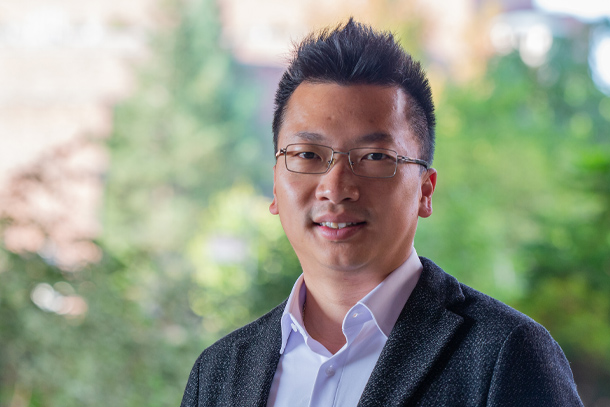
Tak Sing Wong, professor of mechanical engineering and of biomedical engineering. Credit: Penn State College of Engineering
Tak Sing Wong elected fellow of two professional societies
May 2, 2024
By Lauren Colvin
Tak Sing Wong, professor of mechanical engineering and of biomedical engineering, was elected a fellow of the American Society of Mechanical Engineers (ASME) and of the Royal Society of Chemistry.
The ASME Committee of Past Presidents confers the fellow grade of membership in recognition of “significant engineering achievements” advanced by ASME members with at least 10 years of active practice and at least 10 years of active corporate membership in the organization, according to the society’s website. Only 3% of ASME’s members receive the honor.
The Royal Society of Chemistry is the oldest chemical society in the world. Fellows of the Royal Society of Chemistry are members with more than five years in a senior position and who have impacted any field of the chemical sciences, according to the society’s website.
“Dr. Wong is a leading researcher in bioinspired materials and surfaces whose work is recognized for both its innovation and technical impact,” said Mary Frecker, head of the Department of Mechanical Engineering, Reiss Chair of Engineering and professor of mechanical and biomedical engineering. “Specifically, his research in interfacial phenomena and bioinspired materials is highly successful in addressing critical societal problems such as water sustainability, environmental conservation, disease diagnostics and mitigation.”
Wong runs the Wong Laboratory for Nature Inspired Engineering at Penn State, which aims to “translate nature’s discoveries into advanced materials technologies to improve human life,” according to the lab’s website. Wong’s research focuses on surface and interfacial sciences and micro- and nanomanufacturing, as well as biologically inspired materials design with applications in health, water and environmental sustainability. He currently holds 66 issued and pending US and international patents with over 45 licensed.
His work on bio-inspired materials has been recognized with a number of awards including Penn State’s Faculty Scholar Medal for Outstanding Achievement (2024), the Presidential Early Career Award for Scientists and Engineers (2019), ASME’s Sia Nemat-Nasser Early Career Award (2018), IEEE Nanotechnology Council's Early Career Award in Nanotechnology (2016), the DARPA Young Faculty Award (2014), a National Science Foundation Early Career Development Award (2014), and Wong was named to MIT Technology Review’s top 35 innovators under 35 (2014). Wong also co-founded a Penn State-affiliated startup called spotLESS Materials.
Wong received his bachelor’s degree in Automation and Computer-Aided Engineering from The Chinese University of Hong Kong in 2003 and obtained his doctoral degree in mechanical engineering from UCLA in 2009. Wong conducted his postdoctoral research at the Wyss Institute for Biologically Inspired Engineering at Harvard University before beginning at Penn State as the inaugural holder of Wormley Family Early Career Professorship in Engineering.



